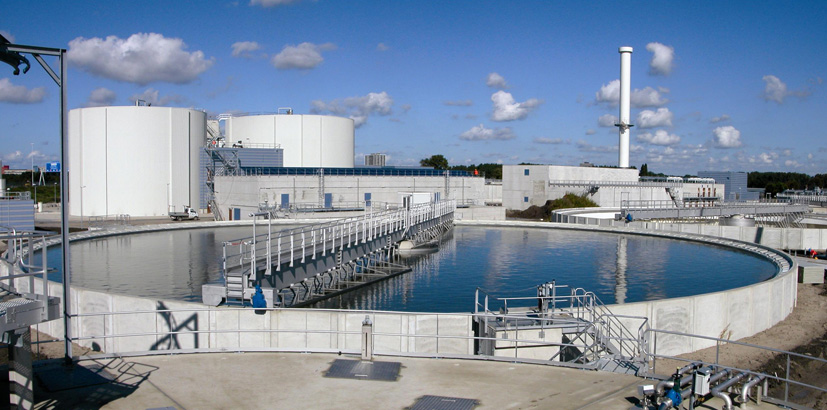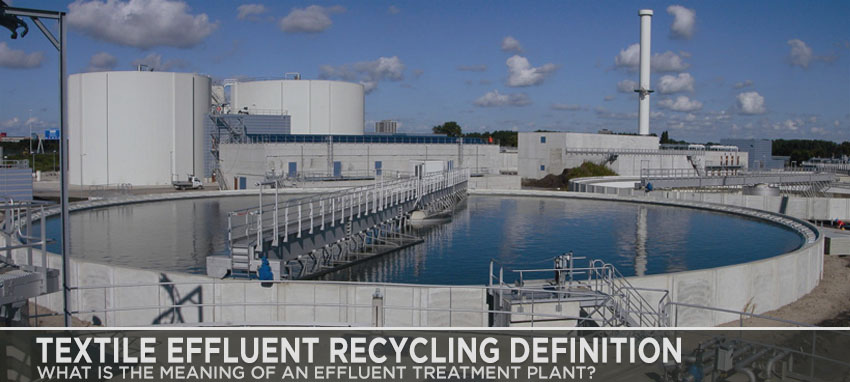
Textile Effluent Recycling
When water is used in huge quantities for textile dyeing the result is depletion of groundwater level. In this process the textile industries generate huge amounts of effluents that contain sodium sulfate, sodium chloride, sodium hydroxide and traces of other salts and colors. WWI also has a solution to reuse this water by purifying it form these impurities. Textile effluent treatment plants process the harmful toxic effluent water and transform it to reusable form. This water can be used in dying process again and can be resold in the market. The foundation of this process is based on two steps that involve separation and evaporation technology. These two processes where first involve evaporation followed by separation reduce effluent to zero levels.
Textile Effluent Recycling Definition
Industries dispose of a lot of waste. Whether it is a chemical factory or one manufacturing garments, every industry today, one way or another produces waste or effluent that is disposed of in the rivers and water, hence polluting it.
What other options do these industries have to get rid of their waste if not dispose of it? Well, they can now opt for the effluent plant.
What is the meaning of an effluent treatment plant?
In simpler words, an effluent treatment plant is a unit that processes industrial waste, collecting it and treating it to dispose of waste in rivers that can be used afterward.
If not treated through these plants, the waste from industries is not only harmful to life underwater but unhealthy for human consumption too. Hence, the effluent treatment plants or ETP make it possible for the waste to be reused for other purposes while reducing the environmental pollution.
Effluent Treatment Plants in Pakistan
Pakistan is a third world country that has set its foot on the path of development over the past years, achieving progress results. But of course, catering a huge population that still lives under poor conditions, one of the biggest problems that the country faces today is the unavailability of clean drinking water.
And when the water is already scarce, the factories and huge industries are seen dumping their effluent in rivers, forcing people to consume contaminated and impure water. This is why, Water World has now successfully introduced textile effluent recycling Pakistan, and setting up effluent plants treat the waste disposed of by industries without considering the negative impact on the environment.
But what is Textile effluent? Textile effluent is waste containing chemicals and contamination disposed of by textile industries which seep into the ground and dissolve in rivers nearby, polluting the water that would then be consumed by people nearby.
Hence, to ensure everyone gets clean and purified water for use, Water World now introduces textile effluent recycling, a process that allows industries to treat waste before dumping it into rivers and thus, making it re-usable.
What is the difference between sewage and effluent?
In general, sewage water is known to be a collection of waste produced by humans that can be from their toilets or kitchen while on the other hand, effluent is water discharged by industries in form of chemicals, etc.
Although, effluent to makes a part of the sewage, but both need to be treated differently to cut on its hazardous content and make it worthy to be used again.
Water World has not successfully introduced effluent and sewage water treatment plants in Pakistan at extremely affordable prices. Not only this, but the company offers a variety of water-related services including setting RO plants, pool maintenance, and repair services too.
Living in a country where clean water is a luxury rather than a basic necessity, industries need to play their part and treat the effluent before dumping it in the open so that, the water the waste seeps into remaining good for use.
Specifications
The key features of this plant involve:
- Easy operation
- Fully customized designed system
- Zero liquid discharge
- Low operating cost
- Highest steam economy
- Production of reusable condensate water
- Textile Effluent Treatment Plants
Textile industry effluent waste – A Solution to Save Environment
Did you know that a huge amount of water is used every day in coloring and finishing processes in a textile industry? This is the reason why the textile industries are one of the largest generators of wastewater. Textile effluent consists of heavily contaminated water with both biodegradable and non-biodegradable chemicals and pollutants such as dyes, dissolved solids, suspended solids, and toxic metals. This contaminated water is released into water bodies like rivers and lakes, posing a serious threat to all types of living beings. The dangerous chemicals used in dyes and colors are a major health hazard for humans and wildlife and are capable of causing life-threatening diseases.

Treating Textile Effluent:
Every textile industry needs a textile effluent recycling plant that is capable of treating gallons of water without costing your industry a fortune. An effluent treatment plant is a unit that processes industrial waste, collecting it and treating it to dispose of waste in rivers that can be used afterward. An ETP can help recycle water which can later be used to serve other purposes. Not only this strategy useful for the environment but it can also save tons of water for your industry proving highly cost effective in the ling run.
Effluent Treatment Plants In Pakistan:
Pakistan has very limited natural resources of water. In order to avoid water shortage and preserve the existing waterbodies, we need to act smart and find sustainable methods to ensure the successful growth of this third world country.
Considering the recent development in the textile industry of Pakistan, it is clear that we may experience scarcity of water if an effective solution is not implemented soon. Hence, the installation of effluent treatment plants is necessary for all water-dependent industries mainly textile mills. It will help companies to reuse a huge amount of water rather than dumping it in a river.
To make this happen, Water World International is providing a fully customized designed system to treat contaminated industrial waste. The machinery is cost-effective and one of the best investments for your company. Get in touch with us today to know all the details about or textile effluent recycling systems.
Textile Industry Effluent Waste Company Contact Details
Get in touch with us today by ringing at +92 213 4664523 & +92 213 4013353.


